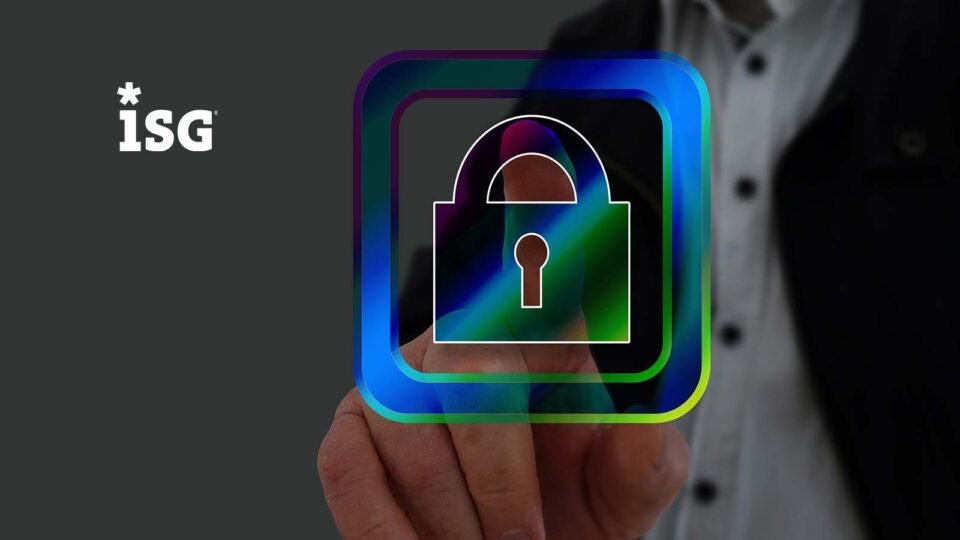Remote work, cloud migration and growing cyber risk help drive enterprises toward next-generation strategies and technologies, ISG Provider Lens report says
Changing work modes, cloud-based digital transformation and a rise in cyberattacks in France have caused enterprises there to focus more attention and resources on cybersecurity, according to a new research report published by Information Services Group , a leading global technology research and advisory firm.
“Companies in France need next-generation security to protect their critical data and infrastructure”
The 2022 ISG Provider Lens™ Cybersecurity — Solutions and Services report for France finds that changes in IT and business operations, including the rise of remote work during the COVID-19 pandemic and increasing cloud adoption, have expanded the IT landscapes of organizations in France and exposed potential new attack surfaces. In response, enterprises are changing the way they purchase security services and seeking new capabilities such as advanced cloud security.
Latest ITechnology News: Kinara and NXP Collaborate to Provide Customers with Scalable AI Solutions Optimized for Deep Learning at the Edge
“Companies in France need next-generation security to protect their critical data and infrastructure,” said Roger Albrecht, co-lead, ISG Cybersecurity. “Service providers are adapting their solution architectures to meet clients’ new requirements.”
Many enterprises in France are implementing new security architectures, including zero trust network access (ZTNA) and full or partial secure access service edge (SASE), ISG says. At the same time, as security costs increase and the pandemic affects business performance, some companies have had to renegotiate security contracts. Under these pressures, plus increasingly stringent data-related regulations, more enterprises are turning to managed security service providers (MSSPs) for both security needs and compliance.
“Cybersecurity risks and requirements have grown beyond the means of many organizations,” said Jan Erik Aase, partner and global leader, ISG Provider Lens Research. “The leading MSSPs in France offer agility, scale and resilience.”
Companies are also seeking providers of strategic and technical security services, in some cases to integrate multiple legacy technologies to reduce both complexity and attack surfaces, the report says. For many, the search does not extend beyond France’s borders: Most enterprises in France expect security services to be delivered locally and in French, so large global security providers have a more limited presence in France than in other European countries, ISG says.
Rapid changes in enterprise IT have also forced some companies in France to adopt new approaches to identity and access management (IAM), where not only people but devices now need identities, and data leakage/loss protection (DLP), the report says. More healthcare providers in France are adopting advanced DLP as regulators mandate stronger protections for IT infrastructure and health data.
Latest ITechnology News: Harness Expands Global Partner Program with New Managed Service Provider Offering
The report explores a wide range of cybersecurity trends in France, including the causes of rising demand for endpoint protection, better user access experiences and other capabilities.
The 2022 ISG Provider Lens Cybersecurity — Solutions and Services report for France evaluates the capabilities of 90 providers across seven quadrants: Identity and Access Management; Data Leakage/Loss Prevention (DLP) and Data Security; Advanced Endpoint Threat Protection, Detection and Response (Advanced ETPDR); Technical Security Services; Strategic Security Services; Managed Security Services – Large Accounts, and Managed Security Services – Midmarket.
The report names IBM as a Leader in five quadrants. It names Atos, Capgemini, NTT and Orange Cyberdefense as Leaders in four quadrants each. Accenture is named as a Leader in three quadrants. Broadcom, Microsoft, Sopra Steria, Thales, Trend Micro and Wipro are named as Leaders in two quadrants each. Computacenter, CrowdStrike, Deloitte, EY, Forcepoint, HelpSystems, Intrinsec, Kudelski Security, Ping Identity, PwC, SailPoint, Sophos, Trellix, VMware Carbon Black and Wipro are named as Leaders in one quadrant each.
In addition, CyberProof is named as a Rising Star — a company with a “promising portfolio” and “high future potential” by ISG’s definition — in two quadrants. Deloitte, Netskope, One Identity (OneLogin) and Palo Alto Networks are named as Rising Stars in one quadrant each.
Latest ITechnology News: Ramon.Space and Kythera Space Solutions Partner to Deliver Autonomous Communications Payload Solutions
[To share your insights with us, please write to sghosh@martechseries.com]


